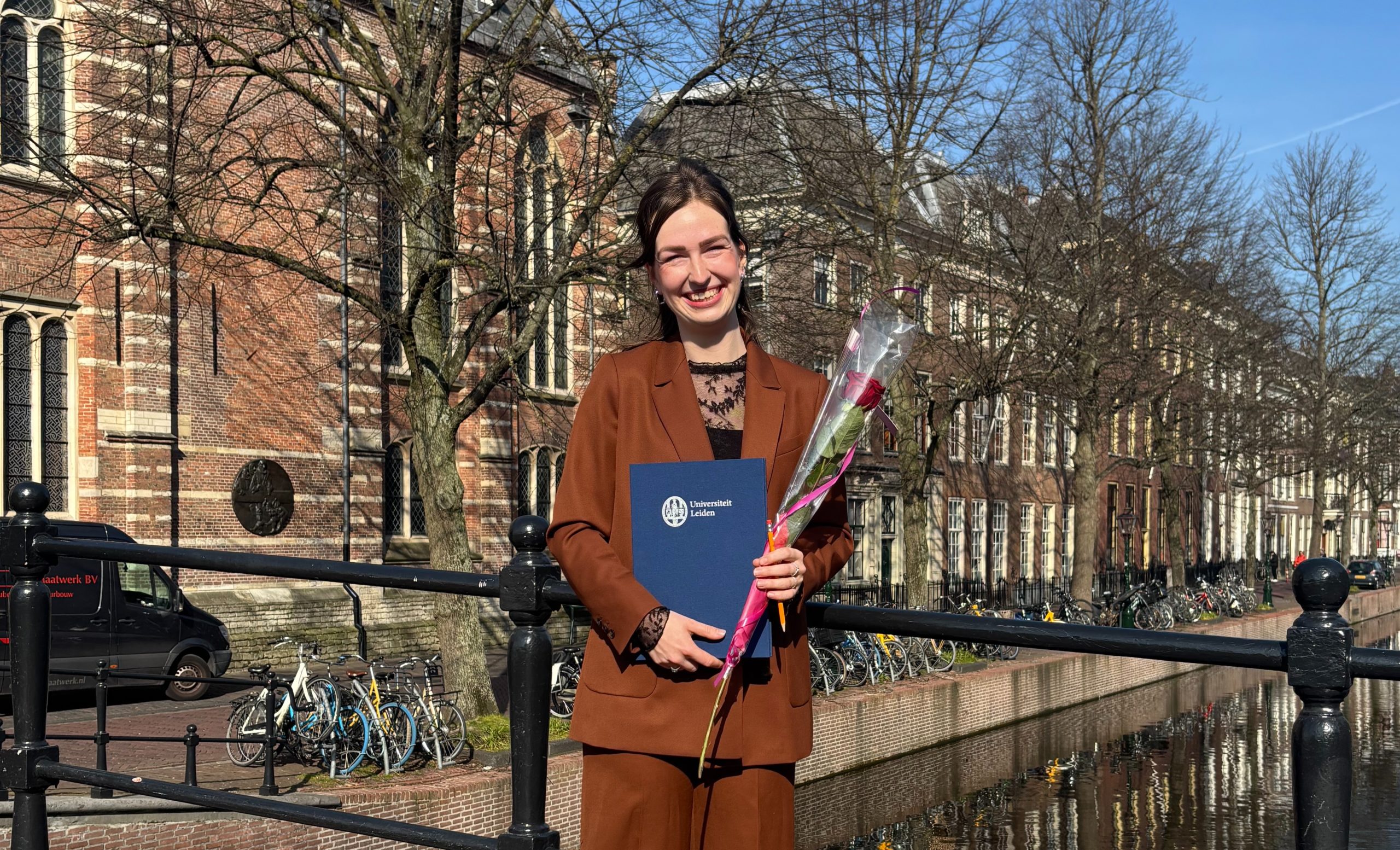What began as a piece of feedback from her professor led to a master's thesis in which former master's student Alabor law Nienke Veldhuis examined platform labor and the qualification question in five legal systems: the Netherlands, Belgium, Germany, France, Spain and Switzerland. With her research, Nienke shows how theoretical questions about entrepreneurship and authority merge with concrete practical cases in multiple countries. Her recommendation: combine international comparison with sectoral precision to future-proof Dutch labor law. In conversation with Oifik Youssefi from HeadFirst Group, Nienke explains her motivations, findings and recommendations, and reflects on the recent case law surrounding Deliveroo and FNV/Uber.
What made qualifying an employment relationship an interesting topic for you to devote your master's thesis to?
I took a writing course during my Employment Law master's and could choose several topics. Platform labor and the qualification question immediately appealed to me, especially after the Deliveroo-ruling. Looking back, I read a note from my professor about the unclear weight of the entrepreneurship element as a contraindication in qualifying a labor relationship. From that moment I knew: this is what I want to get my teeth into, because this is currently playing at all sides of the labor market.
How do you listen to the answers to the preliminary questions in the FNV/Uber case?
The final verdict did not surprise me; in particular, the confirmation that my thesis did not contain crucial errors was a relief. It shows that academic analysis can match what the Supreme Council decides in this area. Salient detail: my thesis supervisor was Gerrard Boot, who, on behalf of the Court of Amsterdam the preliminary questions to the Supreme Court in the FNV v. Uber case, Stefan Sagel was my second reader and he acted as a lawyer on behalf of Uber in the same case.
To what extent was this issue alive among your fellow students and teachers?
There was certainly attention: other students were looking at requalification from the perspective of the social security or tax implications. The beauty of this topic is that everyone has different emphases in their approach. That diversity underscores that there is never one one-size-fits-all solution.
The gravity of this topic is not for everyone; some even call it a tough and boring subject for this reason. To what extent can you agree with that?
Boring it is by no means. The beauty of this theme and at all of themes in the legal field is its versatility: in our very first year of study, we learn that "it depends on the circumstances of the case" is at the heart of any legal issue. Indeed, from case to case, from sector to sector and from case law to case law, the same facts can be assessed completely differently. Both the European Unie as well as national legislators continue to provide new tools, but in the end it always remains tailor-made.

Given that versatility,how did you legally delineate your research?
My starting point was the preliminary questions in the FNV/Uber case itself. I tried to answer them systematically using the case law and legislation in the five selected countries.
Hhave you chosen the five countries and what stood out in their approaches?
Belgium and Germany naturally chose themselves because of geographical proximity and legal system similarity to the Netherlands. France and Spain because of their rich procedural history around platform work, and Switzerland because it was outside the European Unie but experiences European impact. It is striking how each country differente weights and has different perspectives: Belgium looks more emphatically at self-employment entrepreneurship, Germany to the embedding in the organization, France to the absence of subordination, Spain to a lesser extent to entrepreneurship versus authority, and Switzerland splits the criteria between the social security law and the labor law.
What can the Netherlands learn from these foreign approaches?
Belgium's sectoral system provides guidance and clarity: by sector specific guidelines and specific criteria. Switzerland shows how to strategically split social security law and labor law, allowing for different emphases per domain. These examples help legitimize customization in the Netherlands while maintaining consistent frameworks.
What is remarkable about the public debate surrounding the qualification test is the position of academics: hhow do you view the more active role of them in this debate?
I applaud it. Thanks to critical scientists, the the legislature (politicians) and judge (judges) sharp. The Deliveroo- and Uber cases are examples of how platform companies initiate developments that only become legally vital once the cases are more extensive. Academics are thus an important link between practice and law.
How does legal research in practice differ from what you learn in college?
During my internship at the Ministry of Social Affairs and Employment in the summer of 2024 I noticed how legislation is created in the Hague atmosphere. At a law firm, where I interned late last year, I saw that practical testability is central. In college, you learn ideal frameworks; in practice, they must be workable and take into account political and economic realities.
Now, after writing your thesis, how do you view the discussion of flex work and false self-employment differently?
My outlook is colored by understanding both self-employed people and employers. I now see more clearly what rights and obligations are involved and when someone unknowingly ends up in a false self-employment situation. That makes me more critical, but also more realistic about the need for clear and clear criteria.
Coming back to the "tough and boring" nature of this topic. How can this topic be brought more approachable to people who are affected by this but are not substantively concerned with it?
By concretely clarifying the rights of self-employed workers and employees. Many people do not know that they actually get more rights at peak times of false self-employment. Clear examples - such as a Deliveroo biker who can claim transition compensation - make the complexity tangible and relevant.

Request a free consultation

Questions about this? Please contact us.
Sem Overduin
Public Policy & Affairs Manager
Sem.Overduin@headfirst.nl
Oifik Youssefi
Public Affairs Officer
Oifik.Youssefi@headfirst.nl
Maaike van Driel
Head of Legal
Maaike.vanDriel@headfirst.group
Thomas ten Veldhuijs
Senior Legal Counsel
Thomas.tenVeldhuijs@headfirst.nl
